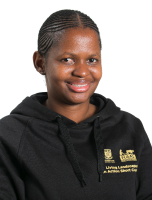
Biography
Ayanda Madlala is an Associate Researcher and a Masters student in the Institute for Poverty Land and Agrarian Studies at the University of Western Cape South Africa. She acquired the following academic qualifications:
- Post-graduate Diploma in poverty, Land and Agrarian Studies (2018) at the University of the Western Cape.
- Honours Degree in Agricultural Studies (2012) at the University of KwaZulu Natal.
- Bachelor of Social Sciences in Geography, Environmental Management and Rural Resource Management (2011) also at the University of KwaZulu Natal.
Her current focus is on the concept of nature conservation with a specific focus on the Living Landscapes in the Northern part of KwaZulu Natal. She is working with local communities surrounding iSimangaliso Wetland Park investigation the history, land and ocean use and changes thereof over time, challenges of living in nature conservation spaces (protected areas) through evidence-based research.
In recent years, she has been involved in a regional project on Food Systems which, among other things, investigated the role of different actors that form part of the food value-chain. Part of the project focused on these role players have been impacted due to COVID-19 and long-term strategies adopted in order to overcome challenges that emerged. She was also part of a panel that presented the aforementioned project findings on national television channels namely, NewzRoom Afrika and eNCA. Other outputs of the project that she was involved in were a Food Systems Documentary, Webinar and Radio Podcast.
She has also worked with young small-scale farmers providing extension services support. She played a lead role (PM) in providing enterprise development support, training workshops, business development, and encouraging the use of innovative climate start agricultural practices (Agro-ecology). She also provided administrative support for an affiliation of organisations working on land use issues, policies, and issues on land administration.
She has worked intensively with people residing on commercial farms (farm dwellers) facilitating the provision of political education, land rights awareness, mobilizing, and organising, in order for farm dwellers to realize and stand up for their rights. She played a supporting role in initiating a women’s group whose focus was to ensure that the voices of women are included in the land debate.
